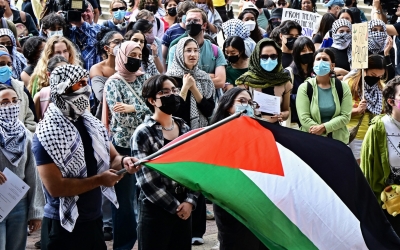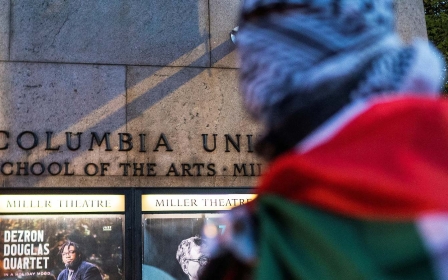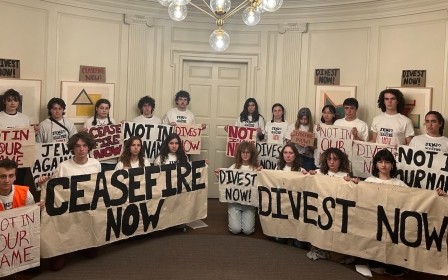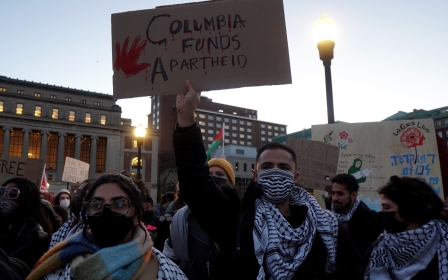Israel-Palestine war: US universities must resist this pro-Israel frenzy of censorship
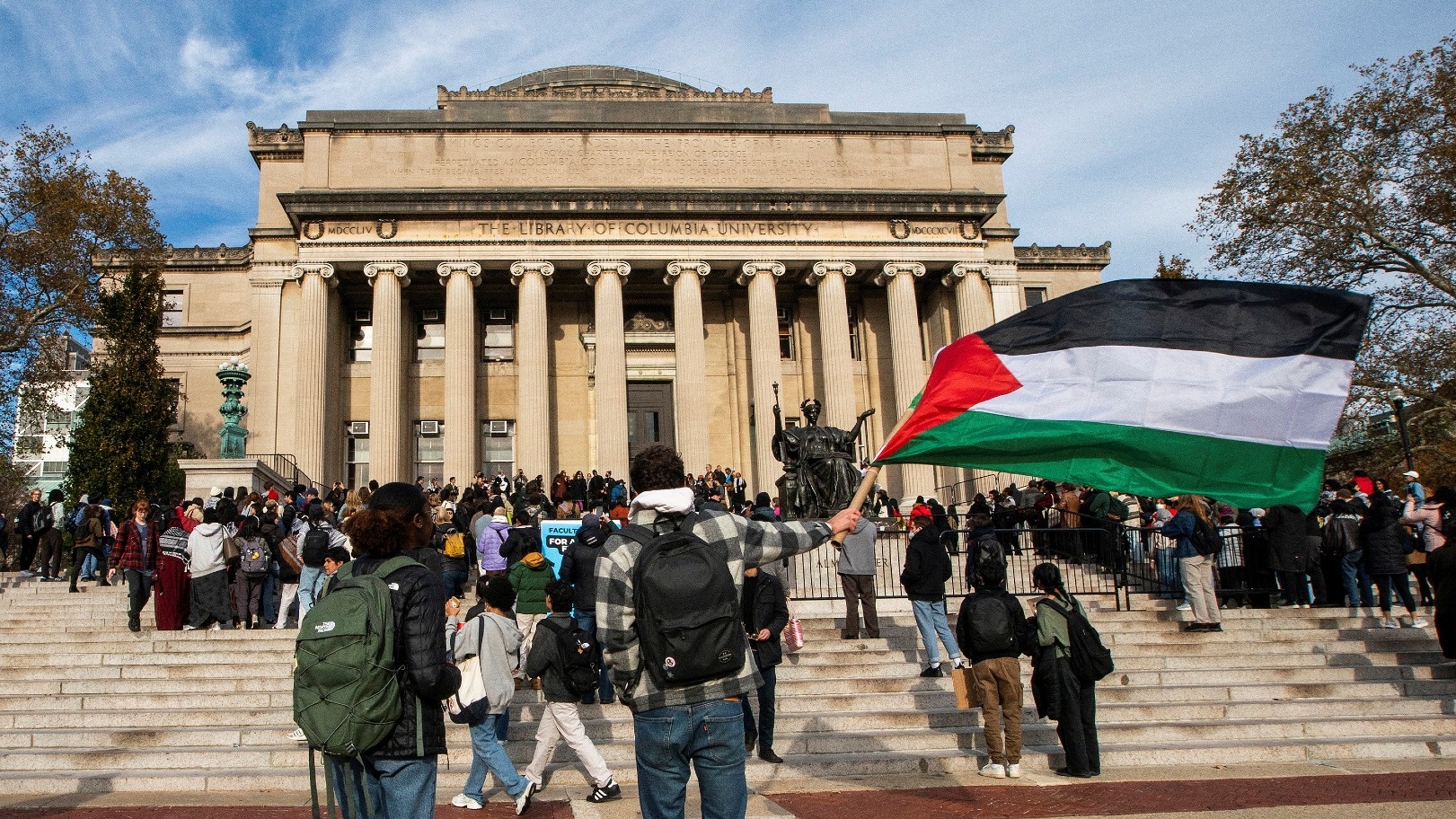
The apocalyptic violence between Israel and Hamas that began on 7 October has claimed the lives of over 1,200 Israelis and 18,000 Palestinians.
Hamas’s attack targeted Israeli military bases as well as civilians, killing and injuring hundreds. Hamas took scores of civilians hostage alongside Israeli military personnel. No doubt these actions against noncombatants are war crimes and cannot be justified.
However, the atrocities committed by Hamas-led fighters on 7 October do not grant Israel immunity for its own - much longer and more violent - history of illegality against the Palestinians, prior to and after the Hamas attack.
Israel’s principal military strategy for dealing with Palestinians resisting occupation is, and has been, massive, disproportionate violence.
Even before the scale of civilian deaths in Israel had become clear, analysts with experience in the Arab-Israeli conflict anticipated that Israel’s response - given its staggering (and humiliating) military losses - would amount to unchecked fury against all Palestinians, not just Hamas.
New MEE newsletter: Jerusalem Dispatch
Sign up to get the latest insights and analysis on Israel-Palestine, alongside Turkey Unpacked and other MEE newsletters
In contrast to defenders of Israel, advocates for Palestinian human rights are immersed in the history and context of the conflict. Human Rights Watch in April 2023 issued a 200-page plus report, “A Threshold Crossed”, that meticulously detailed Israeli practices that amount, in its considered opinion, to the international crime of apartheid.
Increasing documentation of Israel’s violations of international law has allowed university students to recognise the similarity of Palestinians’ historic plight with other oppressed peoples, past and present.
In fact, university students were among the first to issue responses to 7 October. Harvard students, for example, issued a statement that read: “The apartheid regime is the only one to blame. Israeli violence has structured every aspect of Palestinian existence for 75 years. From systematized land seizures to routine airstrikes, arbitrary detentions to military checkpoints, and enforced family separations to targeted killings, Palestinians have been forced to live in a state of death, both slow and sudden.”
Pro-Israel frenzy
Instead of engaging in good faith with students, however, Israel’s hardline supporters in the United States want to shut down debate, and demand that we all fall in line as Israel inflicts even greater death and destruction on Palestinians.
The pro-Israel frenzy has reached dizzying new heights. The American right, which regularly criticises “cancel culture”, is now eager to weaponise it. Elites are using their financial power to chill speech that brings forth Palestinian perspectives at a time when they are most needed.
Following a House hearing where Congresswoman Elise Stefanik grilled University of Pennsylvania President Liz Magill, along with the presidents of Harvard and MIT, over their response to alleged antisemitism on their campuses, Magill announced her resignation. "One down, two to go," was Stefanik's comment on the resignation.
Follow Middle East Eye's live coverage for the latest on the Israel-Palestine war
These McCarthyite hearings are unprecedented in their attempts to crush free speech on America's most prestigious university campuses.
Israel’s defenders have taken the unprecedented step of organising economic blacklists against economically vulnerable students
Wealthy donors are also demanding that universities engage in censorship on campus. Before her resignation, donors had demanded that the University of Pennsylvania fire its president for permitting a Palestinian literature festival that took place before 7 October.
As Magill's resignation shows, some universities are succumbing to the pressure. Columbia University announced it had suspended the campus branches of the Students for Justice in Palestine and Jewish Voice for Peace, for allegedly violating university policies for organising events on campus.
Further, Israel’s defenders have taken the unprecedented step of organising economic blacklists against economically vulnerable students.
Well-known figures in the financial industry, such as hedge fund manager Bill Ackman, for example, have demanded that Harvard release the names of the individual members of the organisations that signed the above statement in solidarity with Palestinians, so that his firm, and other Wall Street firms, do not hire them.”
The most reprehensible attacks against US students come from the Anti-Defamation League (ADL), which has called on universities to investigate student organisations on charges of material support for terrorism.
Scurrilous charges
The principal justification given for these aggressive attempts to shut down free debate about Israel/Palestine at US universities is the specious claim that discourse critical of Israel is antisemitic.
The Rutgers Law School Center for Security, Race and Rights has recently published a groundbreaking report that documents how right-wing supporters of Israel regularly attempt to cancel speech defending the equality of Palestinians by conflating anti-Zionism with antisemitism.
The report, Presumptively Antisemitic: Islamophobic Tropes in the Palestine-Israel Discourse, catalogues, in-depth, looks at how “antisemitism” is falsely and maliciously used to attack pro-Palestine voices.
Compliant mainstream media outlets credulously repeat these scurrilous charges because they are conditioned to make the casual assumption that Arabs and Muslims are antisemites.
Ackman, too, supports this conflation. He has recently suggested that students who support Palestinians are “racist” and declared that “anti-Israel has become antisemitism” to justify censoring debate.
Unfortunately, many high-powered law firms seem to have followed suit. Prominent firms recently rescinded offers to law students for daring to sign statements of solidarity with the Palestinians against Israel’s onslaught.
Numerous prominent law firms sent an ominous letter to law school deans demanding they monitor the speech of their students. An associate was fired for publishing an essay on Medium that was critical of these law firms' blindness to Israel’s history of violence.
A recent graduate of Georgetown Law, a young Muslim woman, had her offer rescinded the day before she was supposed to begin working on account of her Palestine advocacy.
Recognising the stakes, professors at US law schools have circulated a letter calling on law schools to respect the free speech rights of their students and protect them from retaliation from law firms for engaging in political expression.
Democratic culture
American students who advocate for Palestine believe, reasonably, that occupation and apartheid are the principal drivers of violence between Palestinians and Israelis. Many Israelis themselves understand this and - prior to this crisis at least - discussed this openly.
Students protesting for Palestine want the violence between Palestinians and Israelis to end. They believe, passionately, that the Israeli regime of racial domination must be removed and replaced with a genuine democracy based on equality.
Even if one disagrees with their factual assessment of the conflict, American lawyers should agree that the appropriate response to disagreement in a democratic culture is to rebut an opponent’s arguments, not to silence them.
This same principle is equally applicable to American law schools. Law professors are, of course, entitled to disagree vociferously with the political views of their students.
US lawyers should agree that the appropriate response to disagreement in a democratic culture is to rebut an opponent’s arguments, not to silence them
Indeed, when students take public positions on issues of public interest, such as the Israel-Palestine conflict, it is completely appropriate for their professors to express contrary opinions.
But it is not appropriate to slander them as antisemites and call on law firms to blacklist them.
At a time when our democracy is being sorely tested, the legal profession - its firms, practitioners and educators - must stand firmly on the side of the rule of law and democracy. That requires we protect students’ rights to freedom of expression. Engage students in debate if you disagree with them, but don’t threaten them.
The catastrophic violence unfolding in Gaza at this moment calls on all of us to engage in reasoned debate, not further inflame passion or use threats to silence debate.
The views expressed in this article belong to the author and do not necessarily reflect the editorial policy of Middle East Eye.
Middle East Eye delivers independent and unrivalled coverage and analysis of the Middle East, North Africa and beyond. To learn more about republishing this content and the associated fees, please fill out this form. More about MEE can be found here.



